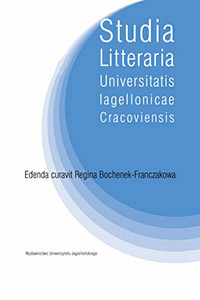La phénoménologie de l’amour de Jean-Luc Marion : l’expérience de la passivité en tant que dépassement de l’égologie
Phenomenology of Love of Jean-Luc Marion : Experience Passivity as Passing of Egology
Author(s): Ilona BalaSubject(s): Contemporary Philosophy, Philosophy of Religion, Transformation Period (1990 - 2010), Phenomenology
Published by: Wydawnictwo Uniwersytetu Jagiellońskiego
Keywords: Marion Jean-Luc; French phenomenology; phenomen; erotic phenomen; gift; donation; phenomenological; reduction; Marion’s erotic reduction; phenomenology of love; theology;
Summary/Abstract: The phenomenology of love, as developed by Jean-Luc Marion in his work Le Phénomène érotique (2003), is related to the concept of gift-giving, whose model is outlined in Étant donné and Réduction et donation. The act of receiving a gift (any kind of gift) is present in philosophers such as Husserl and Heidegger. J.-L. Marion’s new “erotic reduction”, radicalised through a phenomenological reduction, targets man as a human being and his ability to love. Thus, the author of Phénomène érotique defines the concept of the amorous phenomenon in a clear and rigorous way, moving towards the notions developed in his work Prolégomènes à la charité. The objective is to consider and, ultimately, to condemn the essential attribute of mankind, the cogito, since the ego is, above all, a person who loves, appearing as a freestanding category that stands beyond the features of a purely rational being, in the Cartesian sense. Behind Marion’s position emerges a heideggerian critique of Dasein that is not only a negation, but also a constructive elaboration of the ego amans (the lover, the amorous phenomenon), as well as a theological dimension of an iconic image that surpasses us, of the authenticity of human relationships, and of real love (for example, of God). Thus, we are at the intersection of phenomenology and theology.
Journal: Studia Litteraria Universitatis Iagellonicae Cracoviensis
- Issue Year: 10/2015
- Issue No: 4
- Page Range: 299-315
- Page Count: 17
- Language: French

